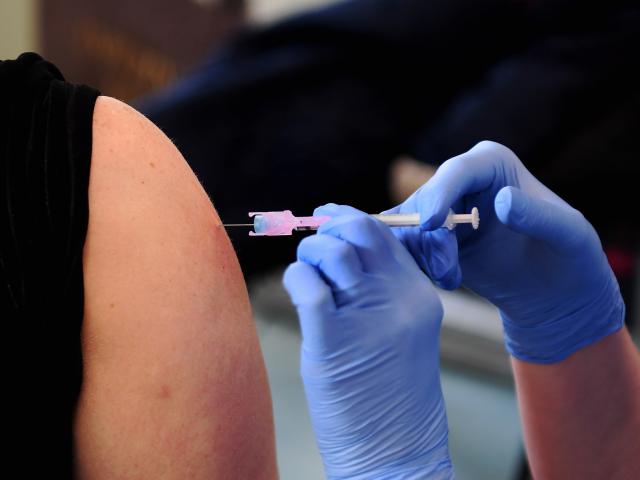
Immunotherapy study could lead to an “off-the-shelf” cancer vaccine
2 October
A study funded by Health and Care Research Wales is aiming to find ways to train the body’s immune system to better identify and tackle cancer cells.
The study focuses on so-called “helper” T-cells, a key type of white blood cell. T-cells don’t react to our own bodies, as doing so can cause diseases (known as autoimmunity). However, this can prevent them from spotting cancer.
This study explores ways to train T-helper cells to better identify and then target cancer, as part of a new wave of cancer therapies, known as immunotherapies.
The findings could ultimately be used to create cancer vaccines that work for more people and are more affordable.
Dr Bruce MacLachlan, Research Associate at Cardiff University’s Division of Infection and Immunity is leading the study. Dr MacLachlan said,
Just like vaccines protect people from viruses, we may be able to develop a way to design cancer vaccines to stimulate a better response against cancer. Following surgery to remove the tumour, the patient would receive a vaccination that would help to prolong their immune response to any remaining cancer cells or any that might have spread.
“T-cells don’t see tumour cells directly, but instead recognise fragments of tumours called peptides. These peptides signpost to T-cells to initiate an immune response. We are aiming to broaden the number of cancer signpost peptides the immune system can see, and increase the immune response to those peptides.”
Results so far have been promising. Dr MacLachlan continued, “We have been able to show in the lab that we can make changes that are better recognised by helper T-cells. The challenge now is to test if this replicates in T-helper cells donated by patients with cancer. We can then try and apply the same principle to more parts of the tumour, to see if we can make the response even better.”
There are some challenges to bringing this type of therapy into practice. Immunotherapies appear to work better in some people more than others, and in some cancers more than others. The most powerful immunotherapies are also incredibly expensive.
Dr MacLachlan continued, “Taking a person’s tumour, analysing it for mutations and making a personalised vaccine is looking very powerful, but its incredibly expensive. It is also important to consider the timelines involved in some cancers’ progression. For example, most cases of pancreatic cancer are diagnosed at stages three and four, meaning there is a very short window for treatment.
“We’re working towards developing a vaccine which is more “off-the-shelf”, and so more applicable, equitable and feasible to deliver.”